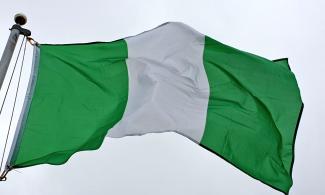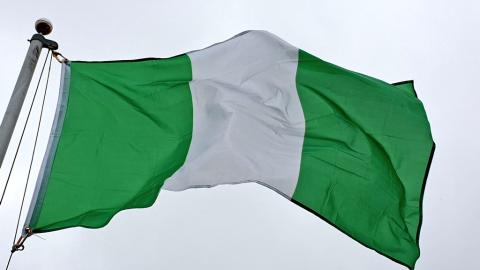
Truth is, there is nothing to celebrate about Nigeria turning 61. Instead, the occasion calls for Sober Reflection and Deep Introspection.
Today marks 61 years since the West African country called Nigeria gained her independence from British rule.
As I lay on my bed reminiscing on the journey of the country called Nigeria, my thoughts keep wandering, thinking of the tragic paradox of how a country could be so blessed, yet so cursed. So rich, yet so poor. So endowed, yet so deprived. With most of her people living below the poverty line, roads still death traps, hospitals without basic equipment, and the citizens living in darkness and more than half of the country at the mercy of terrorists and other criminal groups with a government that is effectively not just there, I was left wondering if indeed the white men didn't leave too early.
Truth is, there is nothing to celebrate about Nigeria turning 61. Instead, the occasion calls for Sober Reflection and Deep Introspection.

SOBER REFLECTION And DEEP INTROSPECTION not just for Nigeria as a country but for the southeast region of the country; home to the very enterprising and industrious Igbos made up of over 50 million people scattered all over the world.
Given the unimaginable level of mindless killings currently going on in the region, it is a matter of ethnic obligation for those who claim to love Ala-Igbo to OBJECTIVELY look at the region and analyse her situation without unnecessary emotionalism and ask the hard questions which a lot of Igbos either do not have the moral courage to ask or the tyranny of their hearts over their heads won't let them accept the answers to.
QUESTIONS SUCH AS:
Is the Southeast today under our governors better governed than Nigeria as a country? Can the Southeast boast of good hospitals, a good road network, well-equipped schools, transparency and accountability in government business, human capital development, etc? IS THERE ANY AREA IN THE SOUTHEAST THAT HAS FARED BETTER THAN NIGERIA IN TERMS OF LEADERSHIP?
If the answer to the above question is in the negative, what is the cause? Has the federal government ever withheld allocation to any southeast state? Has the federal government ever seized the internally generated revenue (IGR) of any Southeast state? Does the National Assembly reject the constituency projects submitted by the Southeast National Assembly members while approving those of their colleagues from other regions? How many Southeast states can stand on their own and sustain themselves without federal allocation from Abuja? Going through the record of how much states generated in Value Added Tax (VAT) and how much they got as recently released in a vanguard newspaper report, I noticed that all Southeast states got more than they generated. So clearly, we are not being cheated on VAT so that's out of the question.
Does the southeast have a leadership problem or do we have a Nigerian problem? Or does Nigeria have a structural problem that is affecting the entire country including the southeast? If the latter is the case, is the structural problem the reason Ebonyi state has the highest poverty rate? Is that why Enugwu and Anambra would rather have billboards telling you that the governors are working instead of showing you the work? Is the structure responsible for the horrible sight Ariaria has become or should we blame the structure for Imo governor bringing the president all the way from Abuja to commission 'gutter' and just one road?
That health centre in your community which still uses local lantern, has broken windows with no net and has only one bed that is in terrible shape despite millions budgeted for it by your local government health department, should we blame it on the Nigerian structure while the local government councillors and Chairmen drive around the same community amidst shout of 'honorable...honorable' from the same community?
That the Nigerian state has woefully failed in her basic duty of protecting lives and property is something even the President seems to agree with, going by the humble way he constantly appeals to bandits and terrorists to stop their evil activities as against using the required force against them. And the southeast leaders have taken the failure to an unimaginable level. The Southeast Governors Forum is as useless as the "P" in Psychology. The fact that these irresponsible folks are still allowed to parade themselves as leaders and draw salaries and allowances speaks to a very low level of civic consciousness amongst Ndigbo. It was their refusal to set up a regional security outfit to confront the menace of the Fulani herdsmen that forced our Self Determination group to create their own armed group to fill the vacuum. These are indisputable facts.
But,
In your heart of hearts, as an Igbo man living in the East today, between being attacked by Fulani herdsmen (the main reason our Self Determination group set up an armed group) and being attacked or even killed by your fellow Igbo man armed with AK-47, WHICH DO YOU FEAR MOST?
Is the current Biafra agitation in the southeast still a quest for Self Determination or is it time we collectively agree it has been hijacked by rogue elements, criminals, terrorists, and other forces both within and from the outside with different agendas and who now hide behind it to unleash sheer terror on innocent Igbos?
Has the current Biafra agitation yielded more positive results for Ndigbo and Ala-Igbo or has it left Ndigbo worse than they were before now??
Is the southeast now rudderless and on autopilot? Or is it effectively in the hands of non-state actors?
Do the Igbo necessarily need a separate country of their own that will bear the name Biafra or do they just want a place to exist in peace and achieve their full potential without some progress-inhibiting measures and constant threat to their lives and property? If the Igbos want a separate Nation, where is the Boundary? Where is the map? Does this map include non-Igbo areas as was the case in the 1967 Biafra or is it only Igbo-speaking states and areas?
How do they hope to achieve Biafra?
Is it through Armed Struggle or the Political Process? Throughout history, is there a record of a people that has ever succeeded in the secessionist quest without the buy-in of their elected politicians and other leaders whose legitimacy the world recognises?
You see, the above questions are as necessary as they are deserving of very honest and dispassionate answers if Ala-Igbo and Ndigbo intend to salvage themselves from the savagery of the numerous savages threatening to doom that noble ancestry.
Happy New Month, everyone.